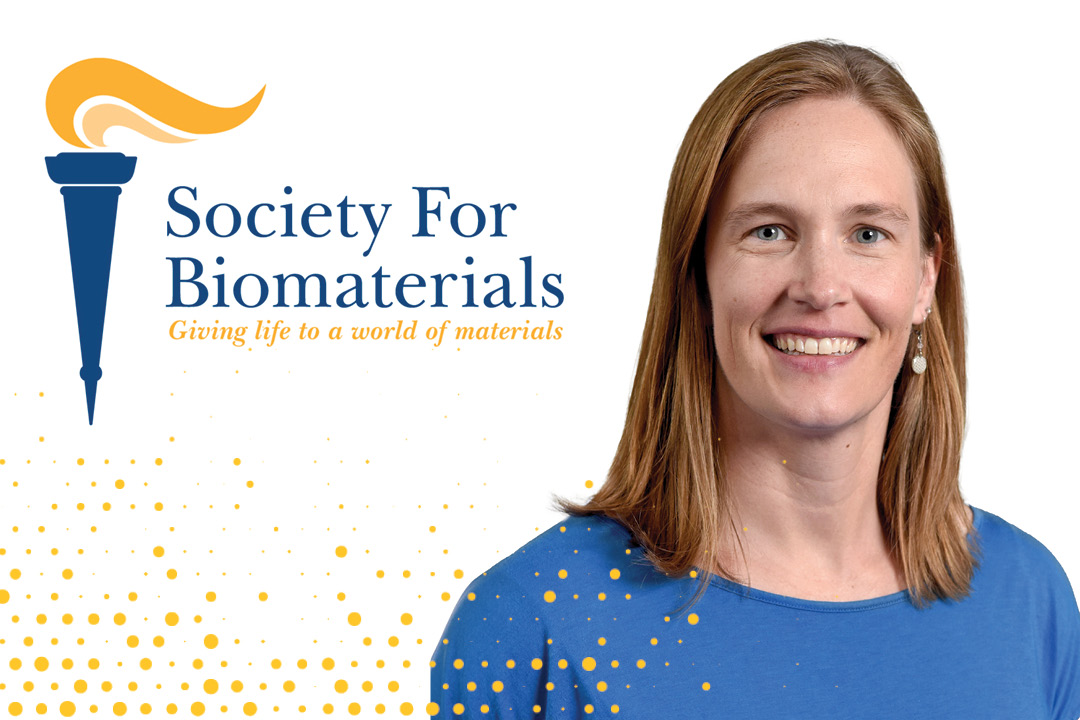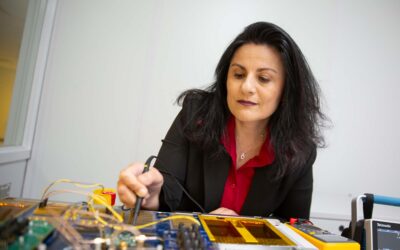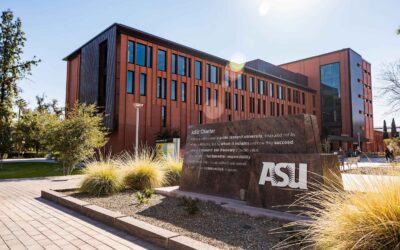Stabenfeldt elected president of Society For Biomaterials
By Hannah Weisman
January 10, 2023

Sarah Stabenfeldt, a professor of biomedical engineering in the Ira A. Fulton Schools of Engineering at Arizona State University, has been elected president of the Society For Biomaterials, or SFB. In the role, Stabenfeldt will serve on the organization’s executive board for the next three years.
The Society For Biomaterials is a multidisciplinary society of academic, health care and business professionals striving to advance biomaterials science, engineering and technology to promote human health and well-being. Stabenfeldt has been an active member for more than 20 years and has served on the SFB Board of Directors and Council, providing extensive experience in the organization’s leadership operations.
“I have been a member of SFB since I was a graduate student,” Stabenfeldt says. “Through the SFB community, I was able to network and find mentors and sponsors who, to this day, still play a huge role in my career development. To now be the president-elect and contribute to a community of current and future generations of leaders in biomaterials is an immense honor.”
Stabenfeldt joined Arizona State University’s School of Biological and Health Systems Engineering, part of the Fulton Schools, as an assistant professor in 2011. She has since dedicated her career to researching regenerative medicine strategies for acute neural injury.
She is currently researching how nanoparticle delivery and biomarker presence vary after brain injury as well as developing methods for neural tissue engineering.
Stabenfeldt serves on numerous scientific journal editorial boards and review panels, including Acta Biomaterialia and the Journal of Biomedical Materials Research Part A. Her efforts have been honored with an array of accolades, including the 2015 Arizona Biomedical Research Consortium Early-Stage Investigator Award, the National Institutes of Health Director’s New Innovator Award and the 2015 National Science Foundation Faculty Early Career Development Program (CAREER) Award.
Stabenfeldt is also an active member of the National Neurotrauma Society and Biomedical Engineering Society, or BMES, and was named a 2023 BMES Fellow for her outstanding achievements and contributions to the biomedical engineering community.
As a longtime SFB member, Stabenfeldt says the organization’s success is due to its strong sense of connection, which she plans to foster as its president.
“I aim to continue to grow this community and further strengthen career networking and development opportunities for trainees and early career scientists,” she says. “I also want to bridge the gaps between academia, government and industry through collaborative sessions at our annual SFB meeting.”
Related Stories
Celebrating an excellent microelectronics professor
ASU researcher Sule Ozev received the Joseph C. Palais Distinguished Faculty Scholar Award for her innovative research, teaching and service to the ASU community
ASU creates hub of coursework for careers in booming microelectronics industry
ASU’s new Microelectronics Workforce Development Hub offers more than 70 courses for all ages of people wanting to train for a new career.
Making eco-friendly microelectronics
Vidya Chhabria aims to reduce VLSI computing systems’ environmental impact with tools to calculate carbon footprint from manufacturing to disposal
How ASU bolstered Phoenix’s rise as US chip capital
Arizona State University’s role in building a skilled labour force is part of a national trend as investors scramble for talent


